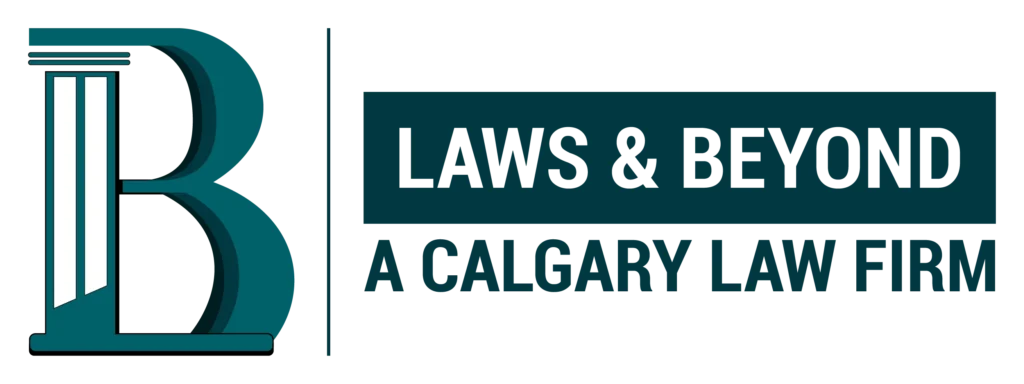Wills law is an essential part of estate planning that is often overlooked by many individuals. However, understanding the ins and outs of wills law is crucial to ensure that your assets are distributed according to your wishes after you pass away. In Alberta, there are specific laws that govern wills and estate planning. This comprehensive guide aims to provide you with a better understanding of wills law in Alberta. This article explains the key elements of wills law, the importance of having a will, and the steps you need to take to create a legally binding will.
What is a will and why is it important?
A will is a legal document that outlines how your assets and belongings will be distributed after you pass away. It includes your wishes for who will manage your estate and distribute your assets to your beneficiaries according to your instructions.
Having a will is important for several reasons. First, it allows you to have control over your assets and ensures that they are distributed according to your wishes. Without a will, your assets will be distributed according to the intestacy laws set out in the Wills and Succession Act of Alberta. This means that your assets may not go to the people you intended, and disputes may arise between family members.
Secondly, a will allows you to appoint someone to be the executor of your estate, who will be responsible for carrying out your wishes. This can provide peace of mind, especially if you have complex estates or dependents that require special care.
In addition, having a will can help to minimize the taxes and fees that your estate may have to pay after your death. It can also simplify the probate process and save time and money for your beneficiaries.
Overall, having a will is a crucial component of estate planning. It allows you to have control over your assets and ensures that your wishes are carried out, giving you and your loved ones peace of mind.
Legal requirements for creating a will in Alberta

Creating a will ensures that your assets are distributed according to your wishes and also provides peace of mind to your loved ones. However, it is important to follow the legal requirements for creating a valid will in Alberta. Here are the legal requirements that must be followed:
1. Capacity – You must be at least 18 years old and of sound mind to create a will. You must understand the nature and extent of your assets and the consequences of making a will.
2. Written Form – Your will must be in writing and signed by you in the presence of two witnesses who are both present at the same time.
3. Witnesses – Your witnesses must be at least 18 years old and of sound mind. They cannot be beneficiaries of your will or a spouse or common-law partner of a beneficiary.
4. Revocation – Your will must include a revocation clause, which cancels any previous wills and testamentary documents.
5. Proper Language – Your will must be written in clear and concise language. It is recommended that you seek assistance from a lawyer to ensure that your will is properly worded.
6. Testamentary Intent – Your will must demonstrate your intent to make a legally binding document that outlines your wishes for the distribution of your assets after your death.
By following these legal requirements, you can ensure that your will is valid and enforceable in the province of Alberta. It is important to regularly review and update your will to reflect any changes in your circumstances or wishes. Consulting with a lawyer can provide you with the information and guidance you need to make informed decisions about your estate planning.
Executorships and responsibilities in Alberta, Canada
An executor, sometimes referred to as a personal representative, is an individual or institution tasked with managing the affairs of a deceased person. The executor is appointed by the deceased through a will or appointed by the court if no will exists. In Alberta, there are specific laws governing executorship, responsibilities, and obligations. Here are some of the key elements to understand:
1. Understanding the Role – As an executor, you have a legal obligation to manage the estate of the deceased. This includes managing and distributing assets, paying debts and liabilities, and filing tax returns.
2. Obtaining Grant of Probate – In Alberta, the executor must apply to the court for a Grant of Probate before they can legally act. This document authorizes the executor to administer the deceased’s estate according to their will.
3. Managing Assets – The executor is responsible for managing and safeguarding the deceased’s assets until distribution. This includes managing bank accounts, investments, and property.
4. Payment of Debts – One of the executor’s primary responsibilities is to pay out any known debts or liabilities of the deceased. This includes funeral expenses, taxes, and outstanding debts.
5. Distribution of Assets – Once all debts and liabilities have been paid, the executor is responsible for distributing the remaining assets to the beneficiaries named in the will.
6. Keeping Accurate Records – The executor must keep accurate records of all financial transactions and expenses related to the estate. These records will need to be submitted to the court for final approval before the estate can be closed.
It is important to remember that being an executor can be a complex and time-consuming process. If you are appointed as an executor, be sure to seek advice from a legal professional to guide you through the process and ensure that you meet all legal obligations and responsibilities.
Distribution of assets and inheritance laws in Alberta
Once all the debts and liabilities have been paid, the executor is responsible for distributing the remaining assets to the beneficiaries named in the will. Alberta has specific laws in place that govern estate distribution and inheritance. Here are some of the key elements to understand:
1. Division of Assets – In Alberta, assets are typically distributed in accordance with the will. However, if the deceased did not leave a will, the assets will be divided among the surviving family members according to the Wills and Succession Act (previously governed by the Intestate Succession Act).
2. Spousal Entitlement – The surviving spouse is entitled to a portion of the estate, regardless of whether or not they are named in the will. In Alberta, the spouse is entitled to receive a preferential share of the estate, which is currently set at the greater of $150,000 or half of the deceased’s net estate.
3. Distribution to Minors – If a minor is named as a beneficiary in the will, their inheritance will be held in trust until they come of age. The executor will be responsible for managing the trust until the minor reaches the age of majority.
4. Equalization Payments – In some cases, one beneficiary may receive a larger inheritance than another. In these situations, the executor may be required to make equalization payments to ensure that each beneficiary receives a fair distribution of the estate.
5. Disputes and Challenges – In some cases, beneficiaries may dispute the contents of the will or challenge the executor’s handling of the estate. If a dispute arises, it is important to seek advice from a legal professional to ensure that your rights are protected.
Understanding the distribution of assets and inheritance laws in Alberta is essential for anyone who has been named as an executor, beneficiary, or is planning to create a will. Be sure to seek guidance from a legal professional to ensure that you are making informed decisions about your estate and protecting the interests of your loved ones.
Updating and Revoking a Will in Alberta

Creating a will is not a one-time event. Over time, your circumstances may change, and your will needs to reflect those changes. You may need to update your will to include new beneficiaries, change the distribution of assets, or remove individuals who are no longer a part of your life. Here is a look at how to update and revoke a will in Alberta:
1. Updating Your Will – To update your will, you can create a new document that includes the changes you want to make. This is known as a codicil. A codicil must be executed in the same way as a will and must include specific language that references the original will. Alternatively, you can create a new will that revokes the old one entirely.
2. Revoking Your Will – There are several ways to revoke a will in Alberta. One option is to execute a new will that expressly revokes all previous wills. Another option is to destroy or cancel the original will. This can be done by physically destroying it, such as by tearing it up or burning it, or by making a statement that you intend to revoke the will.
3. Seek Legal Advice – If you are unsure about how to update or revoke your will, it is important to seek advice from a legal professional. They can guide you through the process and ensure that your wishes are properly documented.
It is essential to keep your will up to date to ensure that your wishes are carried out. By understanding the process of updating and revoking a will in Alberta, you can make informed decisions about your estate and protect the interests of your loved ones.
Special circumstances in Alberta wills law
While the process of creating, updating, and revoking a will is relatively straightforward, there are certain special circumstances that may require additional attention. Some of the common special circumstances that may affect wills in Alberta include:
1. Marriage or Divorce – A marriage or divorce can have a significant impact on your will. If you get married, your will is automatically revoked unless it was made in contemplation of marriage. If you get divorced, any provisions related to your former spouse will be revoked unless you specifically state otherwise.
2. Common- Law Relationships – Not all common-law relationships are recognized in Alberta’s Wills and Succession Act, which means that if you pass away without a valid will, your common-law partner may not inherit your estate, unless they are your Adult Interdependent Partner in accordance with the Act. To ensure that your common-law partner is provided for after your death, you need to include them in your will.
3. Children – If you have children, it is essential to include provisions in your will that outline their care and custody in the event of your death. You should also consider setting up trusts to manage their inheritance until they are of legal age.
4. Multiple Wills – It is possible to create multiple wills in Alberta to deal with different types of assets. For example, you may have one will that deals with your business interests and another that deals with your personal property. This can help to streamline the administration of your estate.
5. Estate Taxes – Estate taxes can substantially reduce the value of your estate. To minimize these taxes, it is important to work with a legal professional to develop a comprehensive estate plan that takes into account the potential tax consequences of your decisions.
By understanding these special circumstances and working with a legal professional, you can ensure that your will accurately reflects your wishes and protects the interests of your loved ones.
Seeking Professional Help for Will Preparation in Alberta

Preparing a will that accurately reflects your wishes and protects your loved ones’ interests can be a complex and challenging process. For this reason, seeking professional help from a qualified legal professional is a smart move.
A professional can provide advice on creating an estate plan that covers all your assets, including property, investments, and any unique assets you may own, such as artwork or intellectual property. They can also help you address special circumstances, such as marriage or divorce, and ensure that your will complies with Alberta laws.
A legal professional can also give you guidance on appointing an executor, setting up trusts for your beneficiaries, and minimizing estate taxes. Finally, they can review and update your will periodically to ensure that it continues to reflect your wishes and takes into account any changes in your situation or the law.
Ultimately, seeking professional help can save you and your loved ones a significant amount of time, money, and stress in the long run. So, if you’re looking to prepare your will in Alberta, consider working with an experienced legal professional to ensure that your wishes are accurately reflected and your loved ones’ interests are protected.
Conclusion
In conclusion, understanding wills law in Alberta is critical for anyone who wants to ensure their wishes are followed and their loved ones are protected after they pass away. From the importance of having a will to the different types of wills available, there are many factors to consider when preparing your estate plan.
It is also important to seek professional help from a qualified legal professional when creating your will, as they can provide valuable advice and guidance that can help you create a comprehensive and effective estate plan. By following these guidelines, you can ensure that your estate plan accurately reflects your wishes and protects your loved ones’ interests for years to come.




